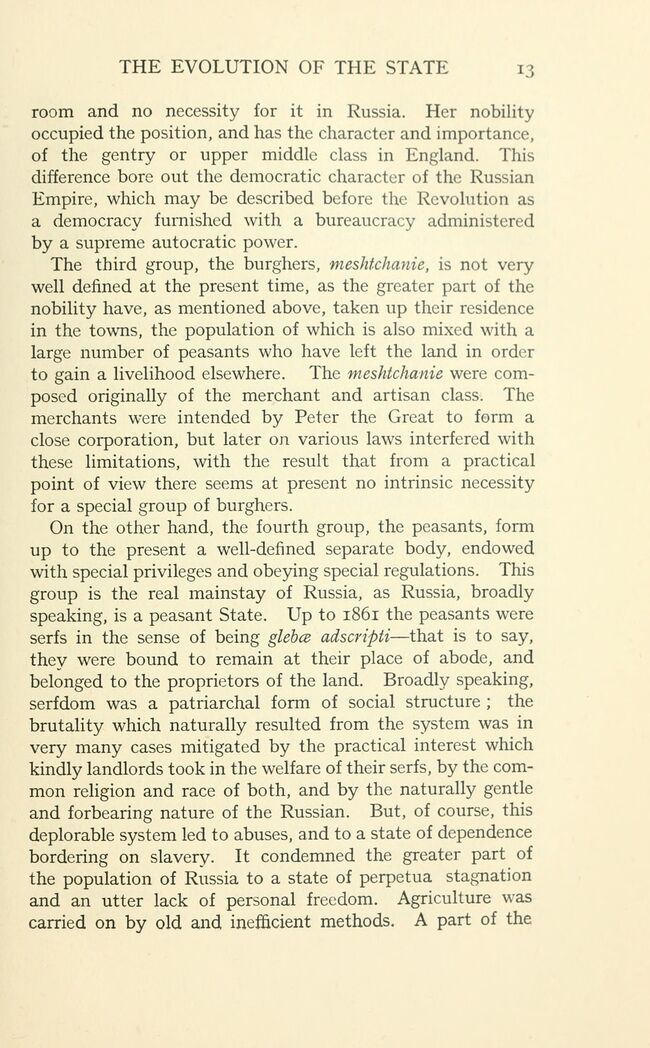
Full resolution (JPEG) - On this page / på denna sida - I. The evolution of the state and social organisations of Russia

<< prev. page << föreg. sida << >> nästa sida >> next page >>
Below is the raw OCR text
from the above scanned image.
Do you see an error? Proofread the page now!
Här nedan syns maskintolkade texten från faksimilbilden ovan.
Ser du något fel? Korrekturläs sidan nu!
This page has never been proofread. / Denna sida har aldrig korrekturlästs.
THE EVOLUTION OF THE STATE ii
room and no necessity for it in Russia. Her nobility
occupied the position, and has the character and importance,
of the gentry or upper middle class in England. This
difference bore out the democratic character of the Russian
Empire, which may be described before the Revolution as
a democracy furnished with a bureaucracy administered
by a supreme autocratic power.
The third group, the burghers, meshtchanie, is not very
well defined at the present time, as the greater part of the
nobility have, as mentioned above, taken up their residence
in the towns, the population of which is also mixed with a
large number of peasants who have left the land in order
to gain a livelihood elsewhere. The meshtchanie were
composed originally of the merchant and artisan class. The
merchants were intended by Peter the Great to form a
close corporation, but later on various laws interfered with
these limitations, with the result that from a practical
point of view there seems at present no intrinsic necessity
for a special group of burghers.
On the other hand, the fourth group, the peasants, form
up to the present a well-defined separate body, endowed
with special privileges and obeying special regulations. This
group is the real mainstay of Russia, as Russia, broadly
speaking, is a peasant State. Up to 1861 the peasants were
serfs in the sense of being glebes adscripti—that is to say,
they were bound to remain at their place of abode, and
belonged to the proprietors of the land. Broadly speaking,
serfdom was a patriarchal form of social structure ; the
brutality which naturally resulted from the system was in
very many cases mitigated by the practical interest which
kindly landlords took in the welfare of their serfs, by the
common religion and race of both, and by the naturally gentle
and forbearing nature of the Russian. But, of course, this
deplorable system led to abuses, and to a state of dependence
bordering on slavery. It condemned the greater part of
the population of Russia to a state of perpetua stagnation
and an utter lack of personal freedom. Agriculture was
carried on by old and inefficient methods. A part of the
<< prev. page << föreg. sida << >> nästa sida >> next page >>